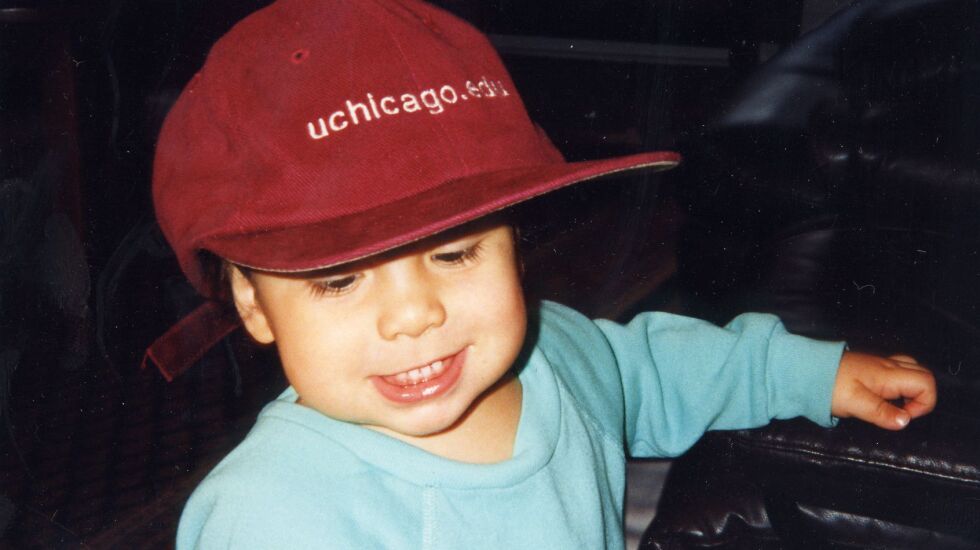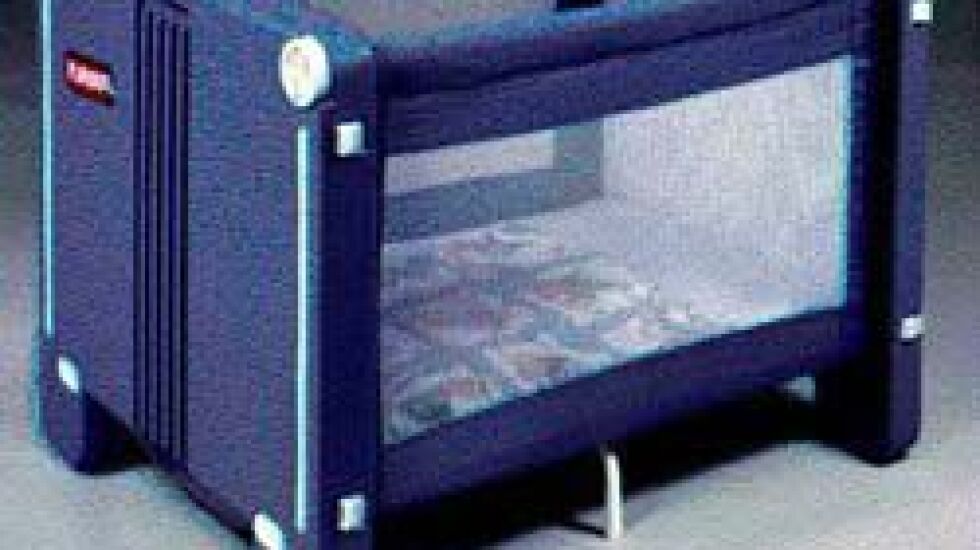
On Mother’s Day 1998, Linda Ginzel was listening to a National Public Radio story about a mom saying a final goodbye to her son in a hospital emergency room.
Ginzel told her husband, Boaz Keysar, that she couldn’t have summoned that kind of strength.
“I would just be in a fetal position,” Ginzel said at the time.
Two days later, Ginzel would find herself at the old Children’s Memorial Hospital in Lincoln Park, having been told that paramedics had done all they could to save her 16-month-old son, Daniel Keysar. He was strangled when a defective portable crib collapsed at a licensed child care home close to the hospital.
But Ginzel was wrong about herself. “Danny died, and I was able to do what I needed to do,” she said this week.
Ginzel and Keysar, both University of Chicago professors, have spent the past 25 years channeling their pain to fundamentally change the way children’s products — cribs, strollers, high chairs, swings and dressers among others — are tested for safety. In 2008, after Ginzel had embarked on a multistate crusade, Congress finally passed the Consumer Product Safety Improvement Act. It required companies, for the first time in U.S. history, to rigorously test children’s products before they’re put on the market — rather than simply making sure, for example, that they don’t have any sharp edges or choking hazards.
And if you’ve filled out and mailed back one of those registration cards that alerts you when a children’s product is recalled — Ginzel and Keysar lobbied to get those included in the safety improvement act too.
But watching for potentially dangerous products is never-ending work for Kids In Danger, a nonprofit Ginzel and Keysar started 25 years ago this month.
“There are always companies that don’t do their homework,” said Nancy Cowles, executive director of KID, which operates out of a River North loft space.
On May 12, 1998, Ginzel had just picked up her elder son, Ely, from preschool and was on her way to get Danny from a home child care facility in Lincoln Park. When she arrived, half a dozen police cars were parked outside. She hurried to the front door. An officer opened the door, and said she needed to go to the hospital and would she like him to drive her?
Danny had already died by the time Ginzel arrived at the emergency room.

The parents, awash in grief, assumed Danny’s death had been a freak accident and that it likely couldn’t have been prevented.
“The day after we buried him, we read in the Chicago Tribune that this was a defective crib, that the same type of crib had killed children before, that the government knew it, but we didn’t know it,” Ginzel said.
Illinois child welfare inspectors didn’t know it either. They’d been in the child care home eight days before Danny’s death and had even inspected the crib, Ginzel said.
From 1990 to 1997, about 1.5 million cribs with a similar design to Danny’s were made, killing at least 19 children, according to KID data.

When Danny died, the woman taking care of him hadn’t heard about the recall because notification was spotty.
Changing the system became the couple’s life mission. Ginzel traveled across the United States, speaking at statehouse committee hearings about Danny and what likely would have saved his life.
“When we first started doing this, a friend of ours was trying to get some information at the U.S. Consumer Product Safety Commission and they basically told her, give [Danny’s parents] a year and they will be gone,” Ginzel recalled.
But Ginzel and Keysar are veteran researchers — they are both psychologists and, in Keysar’s words, Ginzel is a “force of nature.”
The child safety laws were changed first in Illinois, Arkansas then in Michigan, among others. Then, in August 2008, President George W. Bush signed the federal legislation into law.
“It was a huge deal,” Cowles said. “That was the first national law that really changed the system in ways that people didn’t think could be done.”
“Ever since that tragic day, Linda and Boaz’s advocacy has brought about many hard-fought victories for children, such as the 2008 Consumer Product Safety Improvement Act, which included Danny’s Law, a law requiring strong standards for cribs and other nursery products. This was only possible because Linda and Boaz bravely shared their story. Parents have an expectation that the products they purchase around their home and for their children are safe,” said Rep. Jan Schakowsky, D-Ill., who was a sponsor of the federal legislation.
Illinois’ law has one provision not in the federal law: Licensed child care providers can’t knowingly have unsafe children’s products. They can receive a licensing violation if state inspectors find recalled products. The Illinois Department of Public Health now has an online database that allows child care providers to quickly check if a product has been recalled.
KID’s mission has expanded. Just last year, KID’s website launched a free online toolkit “designed to provide small- and medium-sized children’s products companies with the information and tools they need to design, develop and market products more safely.”
The organization has an annual budget of about $400,000, with three full-time employees and one part-time worker — and many student interns.
Urgency and warmth, but not palpable grief, color the couple’s words these days when chatting about their work 25 years after their son’s passing.
“One of the things we’re trying to do is to help keep other families whole,” said Ginzel, speaking via WhatsApp from Israel, where Boaz is on sabbatical. “Ours will never be whole again, but yours can be.”
The couple, who have three other children — all young adults — light a candle on each anniversary of Danny’s death and on his birthday, they said.
“When we go with the kids on a vacation, we’ll pick up a rock in the forest or we’ll pick up a shell from the beach and then we’ll go to the grave and put them there,” Ginzel said.

If each could offer one piece of advice to parents of small children, what would it be?
“Don’t assume that your new, expensive product is safe,” Keysar said.
Added Ginzel: Sign up for email alerts about product safety and recalls at kidsindanger.org.







